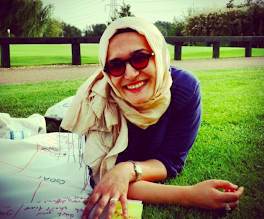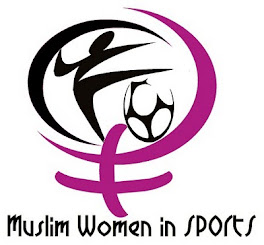First Arab-Israeli team: Teenage footballers play for peace in Middle East as Israel pounds Gaza
By Agency Reporter
Published: Saturday, 10 Jan 2009
The pitch is scruffy, with bare patches of earth and sand. The crowd is desultory, half a dozen girls and boys, yawning in the winter sunshine of the Judean hills. The home players are having a lazy kickabout, as they wait for their opponents‘ bus to arrive.
As football games go, this is as ordinary as it gets. And yet the presence of a tiny FIFA film crew, for this apparently insignificant fixture, shows that something rather special is taking place.
In fact, the match scheduled to hold at the Jerusalem dormitory town of Mevaseret, might be recorded by future sports historians as one of those rare moments when sport was history, when sport made history.
It will be an epochal event like Jesse Owens‘ gold medals in the 1936 Berlin Olympics, which alerted the world to Nazi racial theories. It will also be an event like the ping-pong diplomacy of the ‘70s, table tennis tournaments now seen as the first thaw in the Chinese and American Cold War.
But how can this game of youth football rank alongside those seminal episodes? To understand, you have to know the history of the two teams involved.
Football‘s Hidden Story reports that the home team is Katamon Abu Ghosh Mevaseret FC - ”Katamon” for short. The club was founded by one-time Israeli diplomat, Alon Liel. A few years ago, Liel approached the mayor of Abu Ghosh, a small Arab-Israeli town near Jerusalem, with the idea of combining Abu Ghosh‘s team with a mainly Jewish team from the larger settlement of Mevaseret.
According to the report, Liel‘s intention is to fight the anti-Arab feeling prevalent in sectors of Israeli football. ”The hatred exists mainly in places like Jerusalem, where there has been a lot of Palestinian terrorism. The fact that the Arab population in Israel often identifies with the Palestinian cause, leads to a very low level of trust,” said Liel.
Whatever the reason, this racism can be decidedly nasty. Liel recalls a match between the mixed Arab-Jewish team of Sakhnin, and Betar Jerusalem, one of the leading teams in Israel. ”For 90 minutes the Betar crowd chanted horrible things. They sang, ‘Ahmed, clean the toilets,‘ ‘Ahmed, get me coffee,‘ ‘Death to Arabs.‘‘
To help fight this racism, Liel had a working lunch with the mayor of Abu Ghosh. The mayor agreed to Liel‘s innovative proposal. Since then, the mixed-race football team they established has fought its way through the divisions, and now boasts a strong following of supporters. All three youth squads, attached to the club, combine Arab and Jewish players. The management of the club is likewise divided between Arabs and Jews.
The diversity of Katamon is written on the faces of the young players in Mevaseret for this match. Some of these faces are dark: they are Jews from Ethiopia, who speak Amharic. And some, of course, are Muslim.
There is Fawzi, just 15, and a right back, limbering up for the match. ”I like playing with this team. It‘s difficult for Arabs and Jews to play together normally. But here that‘s what we do - we play together, just like anyone else,” he explained.
The sports director of the team is 31-year-old Mohammad Isa from Abu Ghosh. He said, ”When kids reach their teens it is difficult to integrate them because they fall in love and marry within their own community. But if you start them young, it is easier. I hope we teach these Arab and Jewish kids not just to train together, but to learn from each other.”
The work of Katamon is well known in Israeli society. Liel has harnessed the energy of his mixed-race soccer team to other causes: helping kids from Darfur for example. He likes to think of Katamon as ‘socialist‘ in principle: assisting poor people anywhere.
But the match is a giant stride beyond anything Liel has attempted before. As 12 noon approaches, his face twitches with anxiety. Will the opponents even show? A proper crowd has gathered: alerted to the unusual nature of the game.
At last a big bus sweeps in. And the first person who alights is a woman with a white veil.
She is a Druze Arab, from the Israeli-occupied Golan Heights. And her son belongs to the first Syrian-born football team ever to play in Israel.
A reporter from Yedioth Ahronoth, Israel‘s biggest selling Hebrew tabloid, has arrived. He explains why the game is very remarkable as the young players step down from the bus, with their parents and grandparents.
”These people, the Druze team, are being incredibly brave. They are Syrian nationals, even though they live in the Israeli-occupied zone. Syria has been at war with Israel for decades. Maybe one day Israel will give the Golan back to Syria. Then these people could be shot by the Syrian government: as Israeli spies. Yet they have come here, anyway, to play football. That shows great courage,” the journalist said.
The Druze belong to a religious sect whose beliefs deviate from those of mainstream Islam. They are over a million worldwide with 100,000 living in Israel. The players certainly look rather shy and anxious; Alon Liel rushes forward to reassure them.
It‘s a long and arduous road. The negotiations have been disowned by the respective governments, conscious of popular sentiment. Yet the urge for peace persists. Because without a conclusion to the Golan dispute, Israel can never be truly secure like any normal country.
And this football match is a crucial element of the normalisation of Syrian-Israeli relations. Alon Liel puts it bluntly, ”These Syrians would never have been allowed to come here without the tacit permission of the Damascus government. I see this match as a smile from Syria.”
At first there are not many smiles on the faces of the young and muscular Druze players. But as the match unfolds everyone starts to relax. The Druze team slot three goals past the weaker Israeli squad. At half time the friends and relatives of the Druze players hand out sweetmeats and pastries from Damascus and rosy red apples from the Golan orchards. It is a touching scene.
Rifat and Nedaq are a young couple from the Druze village of Majdal Shams, in the Golan. They are here to watch their brother play: a talented number 10, who has already whacked a brace of goals past the Arab-Israeli keeper for Katamon.
Rifat explains that this is the first time he has been to Jerusalem. ”I am a Syrian national. It is very difficult for the Golan Druze to travel, we do not have Israeli passports, nor do we have Syrian passports. But we are very happy to be here today. Moreso we are winning!”
He turns and cheers. The second half is something of a walkover. The final result is 7-1. The Israeli team hopes to do better when it plays the scheduled return leg, in the green hills of the Golan, a few weeks hence.
But the result, of course, is relatively unimportant. What remains in the mind is the sight of these players, from so many varied, remote and sometimes hostile cultures, brought together by a simple game.
And maybe that simplicity is the key. Make it any more complicated, any more significant, and it wouldn‘t work. Put it another way: peace begins not with politicians signing treaties in palatial halls, but with a shy Arab woman handing out Syrian pastries, to smiling Jewish kids on a scruffy football pitch.
Source: http://www.punchng.com/Articl.aspx?theartic=Art200901104235123
 PARIS, Jan 21, 2009 (AFP) - The Gulf state of Qatar will launch a women’s Tour event next month, bringing together 15 teams, including six national squads, and 90 riders.
PARIS, Jan 21, 2009 (AFP) - The Gulf state of Qatar will launch a women’s Tour event next month, bringing together 15 teams, including six national squads, and 90 riders.





